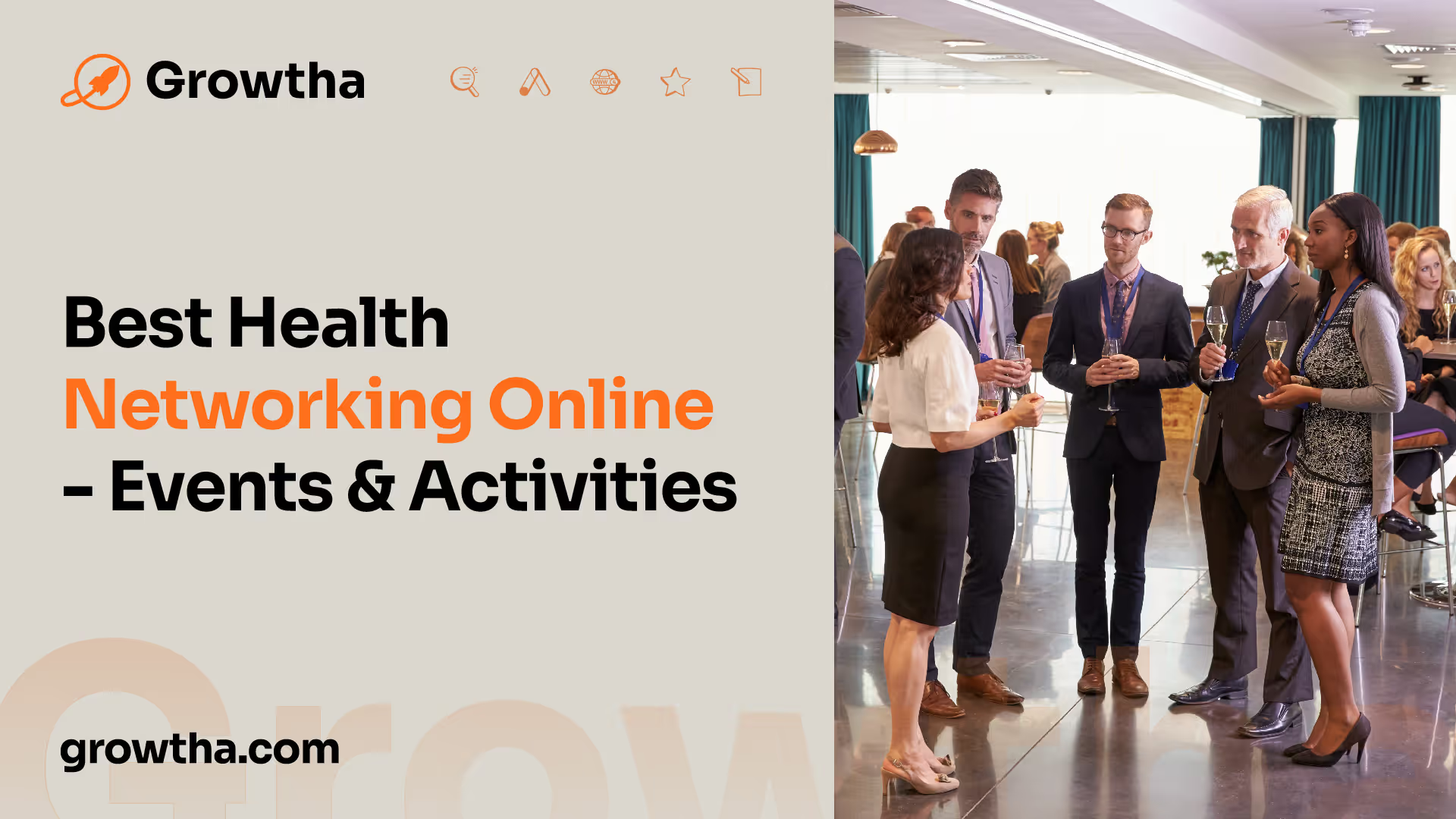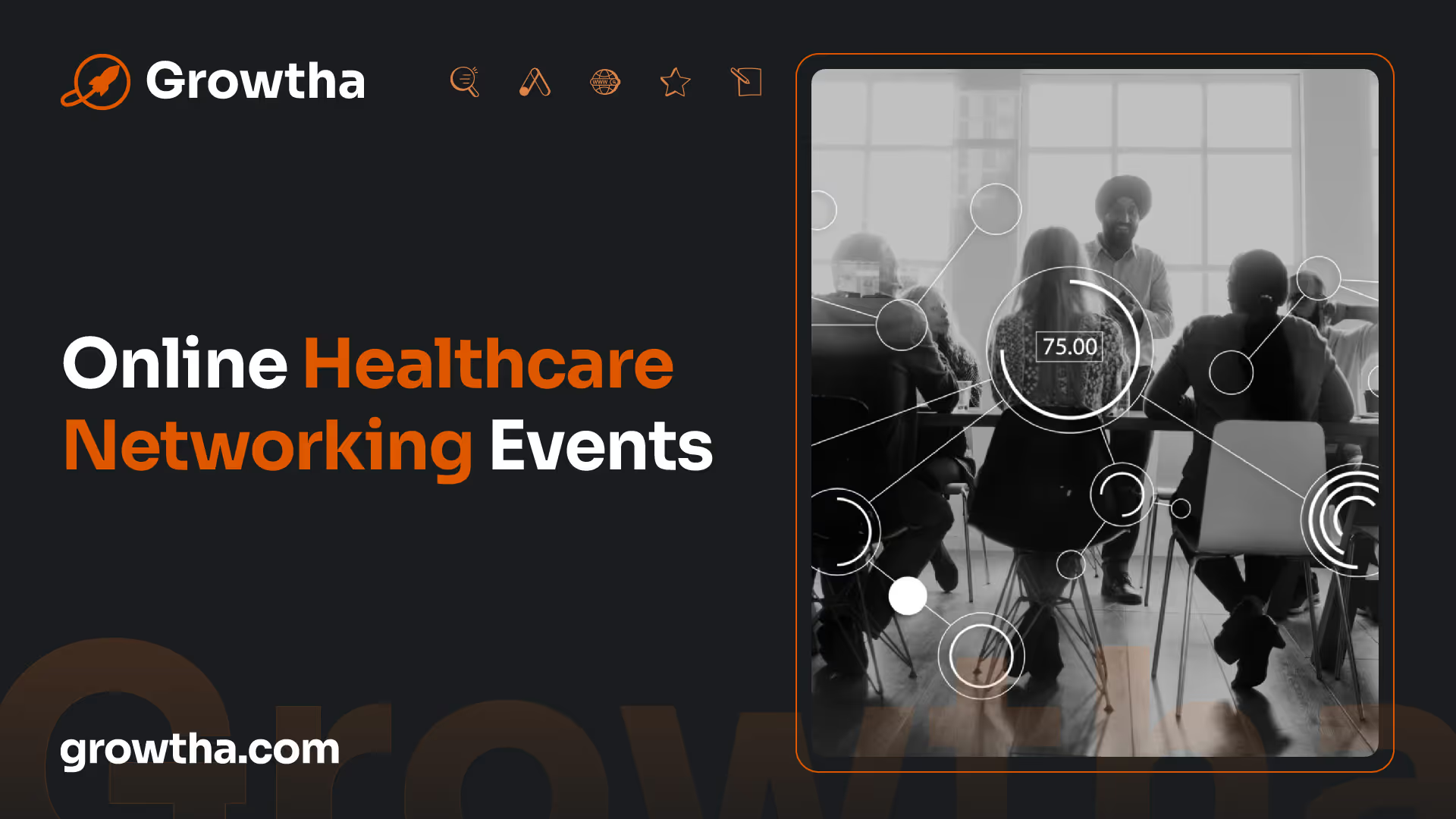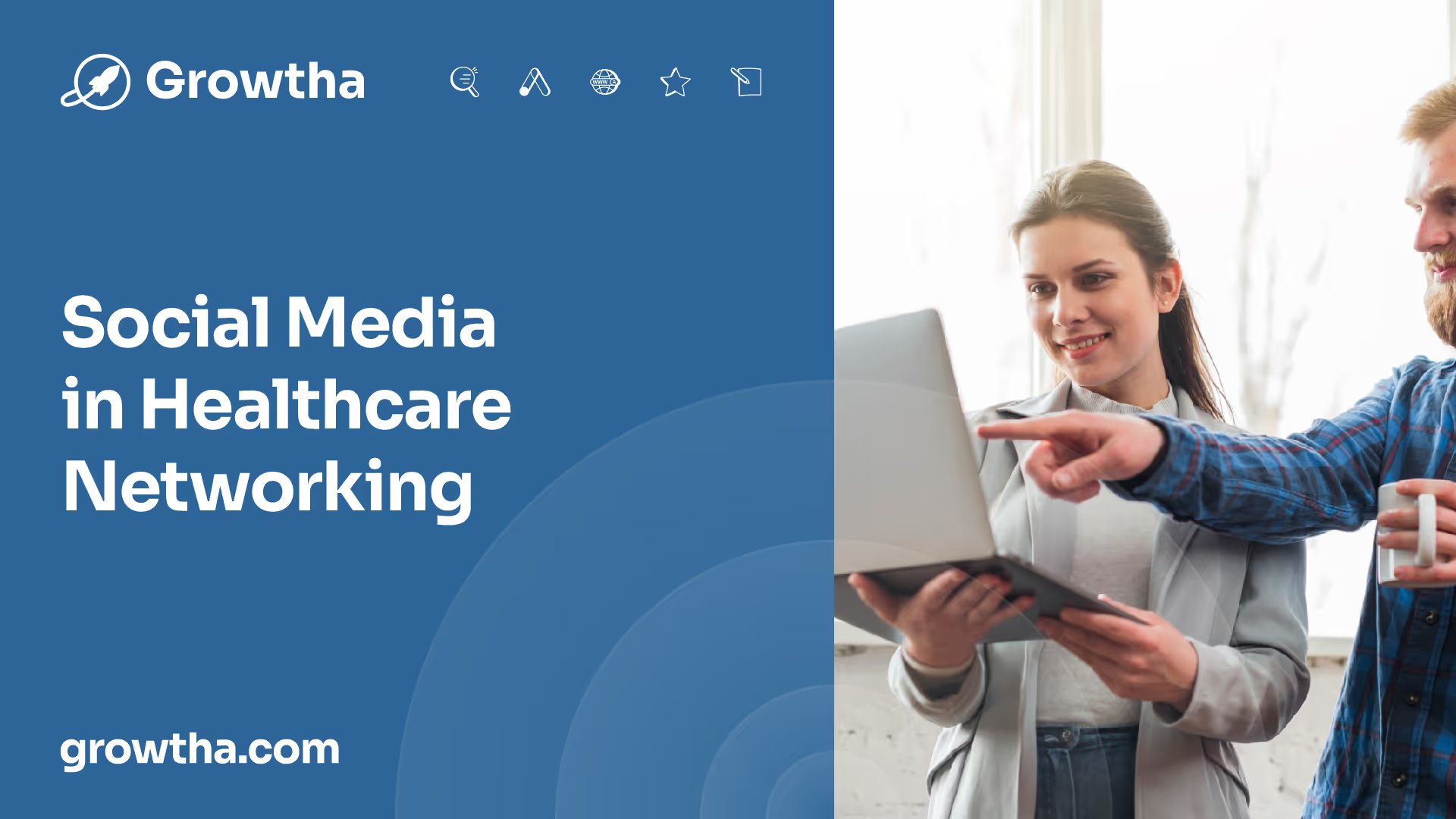Best Health Networking Online - Events & Activities
Networking plays a crucial role in the healthcare industry, providing numerous benefits and opportunities for professionals.


Best Health Networking Online - Events & Activities
Importance of Networking in Healthcare
Networking plays a crucial role in the healthcare industry, providing numerous benefits and opportunities for professionals. By actively engaging in professional networking, individuals in the healthcare field can expand their knowledge, enhance their career prospects, and forge meaningful connections with peers.
Benefits of Professional Networking
Networking in the healthcare sector offers several key advantages. According to GetHealthie, 80% of today's jobs are acquired through networking. This statistic highlights the importance of networking for strengthening professional life and finding new opportunities, even if one is not actively seeking a new job.
Some of the benefits of professional networking in healthcare include:
- Valuable Opportunities: Networking can lead to valuable opportunities, partnerships, collaborations, referrals, and a larger client base. It can also result in long-lasting friendships.
- Client Acquisition: Effective networking with wellness professionals can help in obtaining new client leads and establishing a steady flow of clients for your practice. Referrals from mutual contacts are one of the best ways to obtain a client base.
- Collaboration and Innovation: Networking can lead to collaboration opportunities on projects, studies, or programs with other wellness professionals who share professional interests [1].
- Mentorship and Career Growth: Building relationships through networking can open up mentorship opportunities, especially for those beginning their careers. Establishing a relationship with an experienced provider in your sector can help in learning about your field, finding opportunities, and creating a career you love [1].
Opportunities in Health Networking
Health networking offers a range of opportunities for professionals to connect, collaborate, and learn from each other. These opportunities can include:
- Conferences and Events: Healthcare conferences and events provide a platform for professionals to network, share knowledge, and stay updated on the latest trends and advancements in the industry.
- Online Networking: Online platforms and communities dedicated to healthcare professionals allow for networking on a global scale. These platforms provide opportunities to connect with colleagues from different parts of the world, exchange ideas, and seek advice.
- Social Media: Social media platforms like LinkedIn and Twitter have become powerful tools for healthcare networking. Professionals can join industry-specific groups, participate in discussions, and build connections with like-minded individuals.
- Volunteer Work: Engaging in volunteer work within the healthcare community not only allows professionals to give back but also provides networking opportunities with other volunteers, healthcare organizations, and potential employers.
By recognizing the importance of networking and actively participating in healthcare networking opportunities, professionals can enhance their careers, expand their knowledge base, and contribute to the growth and advancement of the healthcare industry.

Online Healthcare Networking Events
In today's interconnected world, online networking events have become increasingly popular in the healthcare industry. These events provide valuable opportunities for professionals to connect, collaborate, and share knowledge. Let's explore some key aspects of online healthcare networking events.
Diverse Event Formats
Healthcare networking events come in a variety of formats, catering to different preferences and objectives. These events can include virtual conferences, webinars, panel discussions, workshops, and more. The diverse range of formats allows participants to choose the events that align with their specific interests and goals. By engaging in these different formats, attendees can expand their professional network and gain insights from experts in the field.
Global Reach of Events
Online healthcare networking events have a global reach, attracting participants from various locations worldwide. These events are not restricted by geographical boundaries, enabling professionals to connect with individuals from different countries and cultures. The international scope of these events provides a platform for cross-cultural collaboration and the exchange of diverse perspectives. Professionals can gain valuable insights into healthcare practices from around the world and establish connections that transcend borders.
Multilingual Participation
To accommodate a diverse audience, online healthcare networking events often offer multilingual participation options. These events provide language options such as English, Simplified Chinese, Dutch, French, and more. By offering multiple languages, organizers facilitate effective communication and encourage participation from individuals across different regions and linguistic backgrounds. This inclusivity allows professionals to engage in discussions and build connections in their preferred language, fostering a more inclusive and collaborative networking environment.
It's important to note that while some online healthcare networking events may be free to attend, others may require registration fees ranging from EUR 0 to EUR 3000, depending on the event and its offerings [2]. Professionals should consider their budget and goals when selecting events to ensure optimal networking opportunities.
Participating in online healthcare networking events is an effective way to expand professional networks, gain industry insights, and establish collaborations with peers, mentors, and industry leaders. These events provide a platform for meaningful interactions beyond casual introductions. Engaging in structured sessions, panel discussions, and workshops at these events allows professionals to make the most of their networking efforts [3]. By embracing online networking events, healthcare professionals can leverage the power of technology to forge connections, exchange ideas, and contribute to the growth and advancement of the healthcare industry.

Social Media in Healthcare Networking
In today's digital age, social media has become a powerful tool for healthcare professionals to enhance their networking efforts. It offers a range of benefits, but also comes with risks and considerations that need to be taken into account.
Utilizing Social Media Tools
Social media platforms provide healthcare professionals with opportunities to connect, collaborate, and share knowledge with colleagues from around the world. These platforms facilitate networking by allowing professionals to create and join communities, participate in discussions, and share valuable resources.
Some popular social media sites for healthcare professionals include Sermo, a physician-only social networking community, and Doximity, a newer physician-only social networking community that offers text and images compliant with HIPAA. These platforms provide a secure and focused space for professionals to engage with their peers [4].
Social media can also be used for professional education, organizational promotion, patient care, patient education, and public health programs. It offers a means to disseminate information, raise awareness, and collaborate on research projects. Through social media, healthcare professionals can stay updated on the latest developments in their field, access educational resources, and seek expert opinions.
Risks and Considerations
While social media presents numerous opportunities for healthcare networking, it is important to be aware of the potential risks and considerations involved. These include:
- Unreliable information: Not all information shared on social media platforms is accurate or evidence-based. Healthcare professionals must exercise caution and critically evaluate the information they come across. Relying on verified sources and peer-reviewed research is essential to ensure the credibility of the information.
- Patient privacy: Healthcare professionals must adhere to strict privacy guidelines and protect patients' confidentiality. When using social media, it is crucial to avoid discussing specific patient cases or sharing any identifiable information. Respecting patient privacy is paramount to maintain trust and professionalism.
- Maintaining professional boundaries: It is important for healthcare professionals to maintain professional boundaries while using social media. Avoiding personal opinions or controversial discussions that could compromise professional integrity is crucial. Being mindful of the professional image projected online is essential for building and maintaining a reputable online presence.
- Security and data protection: Healthcare professionals must take necessary precautions to protect their personal and professional information online. Utilizing strong passwords, enabling two-factor authentication, and regularly updating privacy settings are some steps that can be taken to enhance security. Additionally, being cautious about sharing identifiable information and avoiding interactions with suspicious or unknown individuals is important.
Guidelines for the use of social media by healthcare professionals have been issued by professional organizations such as the American Medical Association, the Federation of State Medical Boards, and the National Council of State Boards of Nursing. These guidelines provide valuable recommendations and best practices to ensure ethical and responsible use of social media in the healthcare field.
By utilizing social media tools effectively and being mindful of the risks and considerations, healthcare professionals can harness the power of digital networking to expand their professional connections, access valuable resources, and contribute to the advancement of healthcare.
Strategies for Virtual Networking
In today's digital age, virtual networking has become an essential tool for healthcare professionals to expand their connections and opportunities. By utilizing online platforms and engaging in various strategies, professionals can maximize their virtual networking efforts. Here are three effective strategies for virtual networking in the healthcare industry.
Online Community Engagement
Joining online communities on platforms such as LinkedIn, Facebook, Twitter, or Reddit can be a valuable way for healthcare professionals to connect with others in their field. These communities offer opportunities to discover new resources, share insights, ask questions, and receive feedback from other professionals. Participating in discussions, polls, webinars, and live chats can showcase expertise and interests, fostering meaningful connections [5].
Content Creation for Networking
Creating and sharing valuable content is an effective way for healthcare professionals to establish their personal brand and attract attention within the industry. By creating articles, blogs, newsletters, or ebooks that demonstrate their knowledge, skills, and passion for healthcare, professionals can generate engagement and showcase their expertise. Sharing content can help professionals connect with others who have similar interests and goals, leading to valuable networking opportunities [5].
Attending Virtual Events
Virtual events, such as webinars, workshops, seminars, panels, and conferences, have become increasingly popular in the healthcare industry. These events provide healthcare professionals with opportunities to network with a large number of individuals who share their interests, goals, or challenges. They offer platforms to learn new skills, gain insights, and stay updated on the latest trends and developments in healthcare. Attending virtual events organized by professional associations, industry leaders, or online platforms allows professionals to connect with a diverse range of individuals from different locations, expanding their network beyond geographical boundaries.
By employing these strategies, healthcare professionals can enhance their virtual networking efforts and create valuable connections within the industry. Engaging with online communities, sharing insightful content, and attending virtual events are powerful ways to expand professional networks, stay updated, and foster collaborations in the ever-evolving healthcare landscape.
Effective Networking Techniques
Networking in the healthcare industry involves more than just attending events or joining online communities. It requires effective techniques to reach out to individuals, build and maintain relationships, and make the most of industry events and conferences.
Reaching Out to Individuals
One of the best ways to expand your professional network is by reaching out to specific individuals who can offer guidance, support, or opportunities. These individuals may include mentors, coaches, experts, influencers, or recruiters. Platforms like LinkedIn, email, or phone can be used to initiate contact [5].
When reaching out, it's important to maintain a professional and respectful approach. Clearly communicate your intentions, express your interest in connecting, and highlight what you can bring to the relationship. By being proactive and thoughtful in your outreach, you can form valuable connections that can contribute to your career growth and learning.
Building and Maintaining Relationships
Networking is not a one-time activity but an ongoing process of communication, collaboration, and mutual benefit. Building and maintaining relationships with your contacts is crucial in the healthcare industry. Platforms like LinkedIn, email, or phone can be used to stay in touch, provide value, and show appreciation [5].
Nurturing your relationships involves regularly following up with your contacts, sharing updates, offering help, and seeking advice when needed. By demonstrating genuine interest and contributing to the relationship, you can foster strong connections that may lead to collaboration, mentorship, or new opportunities.
Industry Events and Conferences
Attending industry events and conferences is an effective way to expand your professional network in healthcare. These events provide opportunities to connect with peers, mentors, and industry leaders, leading to new collaborations and knowledge exchanges [3].
To make the most of these events, it's important to go beyond casual introductions. Engage actively in structured sessions, panel discussions, and networking activities. Show genuine interest in others' work, ask thoughtful questions, and actively listen. By actively participating and building meaningful connections, you can establish a strong network of professionals in your industry.
By employing effective networking techniques, such as reaching out to individuals, building and maintaining relationships, and actively participating in industry events, healthcare professionals can expand their networks, gain valuable insights, and open doors to new opportunities. Networking is a continuous process that requires dedication and effort, but the rewards can be significant for career growth and professional development.
Enhancing Networking Skills
Networking skills are essential for professionals in the healthcare industry to expand their connections and create opportunities for career growth. In this section, we will explore three strategies for enhancing networking skills: leveraging LinkedIn for networking, volunteering in healthcare, and mentorship and education opportunities.
Leveraging LinkedIn for Networking
Health Tech Academy highlights leveraging social media platforms, such as LinkedIn, as a powerful tool for networking within the healthcare industry. To make the most of LinkedIn, professionals can:
- Create a compelling LinkedIn profile that showcases their expertise, skills, and achievements. This serves as a digital resume and helps attract the attention of potential connections.
- Engage with industry influencers by following their profiles, sharing their content, and participating in relevant discussions. This can lead to meaningful interactions and opportunities to connect with thought leaders in the healthcare field.
- Connect with professionals worldwide by actively reaching out to individuals who share similar interests or work in related fields. This expands one's network beyond geographical boundaries and opens doors for collaboration and knowledge sharing.
By utilizing LinkedIn effectively, healthcare professionals can establish valuable connections, stay updated with industry trends, and access a vast network of professionals in the healthcare field.
Volunteering in Healthcare
Volunteering for professional organizations within the healthcare sector is not only a fulfilling way to give back to the community but also an excellent opportunity to network with like-minded professionals. Engaging in activities such as serving on committees, organizing events, or contributing to advocacy efforts. These activities provide a platform to establish meaningful connections and gain valuable leadership experience.
By volunteering, healthcare professionals can connect with individuals who share a passion for improving healthcare, creating opportunities to collaborate, exchange ideas, and expand their network within the industry.
Mentorship and Education Opportunities
Establishing meaningful mentorship relationships with experienced professionals in healthcare is emphasized as a valuable resource for career growth and personal development. Health Tech Academy suggests seeking mentorship relationships within organizations, professional networks, or academic institutions.
Mentors provide guidance, support, and insights into navigating the complexities of the healthcare industry, shaping one's professional journey. By connecting with mentors, healthcare professionals can gain valuable knowledge, expand their network through their mentor's connections, and accelerate their career growth.
In addition, participating in mentorship and education opportunities, such as continuing education and training programs, provides an environment for networking. These programs offer networking opportunities during breaks, group activities, and collaborative projects, allowing participants to connect with instructors, guest speakers, and peers from diverse backgrounds and specialties.
By actively seeking mentorship and engaging in educational opportunities, healthcare professionals can enhance their networking skills, gain valuable insights, and establish a strong support network within the healthcare profession.
Networking skills are crucial in the healthcare industry, and by leveraging LinkedIn, volunteering, and seeking mentorship and education opportunities, professionals can enhance their networking capabilities, expand their connections, and create new opportunities for personal and professional growth.
References
[1]: https://www.gethealthie.com/blog/benefits-of-professional-networking
[2]: https://www.b2match.com/b/health
[3]: https://www.healthtechacademy.org/employers/how-to-network-more-effectively-in-healthcare/
[4]: https://www.ncbi.nlm.nih.gov/pmc/articles/PMC4103576/
[5]: https://www.linkedin.com/advice/3/what-best-virtual-networking-strategies-healthcare-professionals-suikf







